Martin Centre Hosted 2022 Annual Seminar on Systemic Functional Linguistics and its Appliability: Systemic Functional Grammar
From June 23 to 25, the Martin Centre for Appliable Linguistics successfully held the 2022 Annual Seminar on Systemic Functional Linguistics and its Appliability. The topics of this seminar include Systemic Functional Grammar, with specific topics of systems and systemic networks, groups and phrases, TRANSITIVITY system, MOOD and MODALITY, theme and information structures, and clauses and clause complexes. The seminar was held online with the participation of nearly 50 teachers, undergraduates, postgraduates and doctoral students from universities around China.
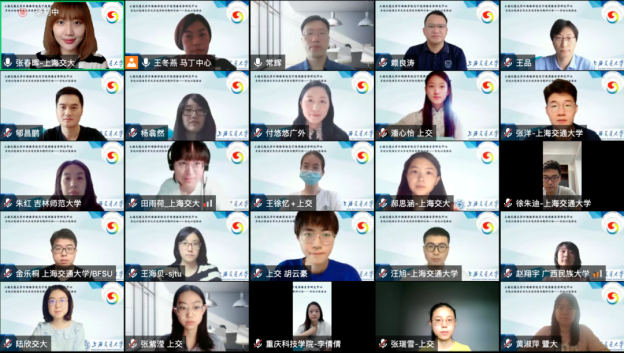
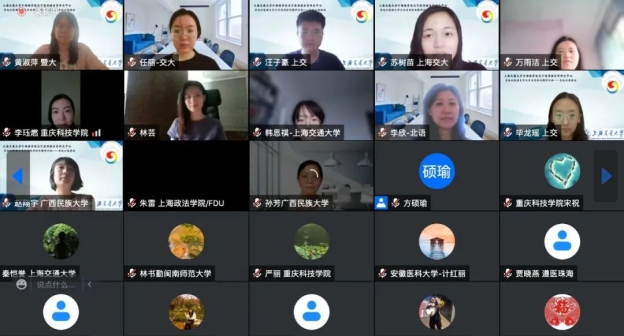
Professor Chang Hui, Dean of School of Foreign Languages, Shanghai Jiao Tong University, addressed the opening ceremony. Professor Chang reviewed the most important schools of linguistics and pointed out that Systemic Functional Grammar in systemic functional linguistics is a fundamental theoretical basis for theoretical and applied research in linguistics, and looked forward to the development of systemic functional linguistics in the field of interdisciplinary research, and wished the seminar a success.
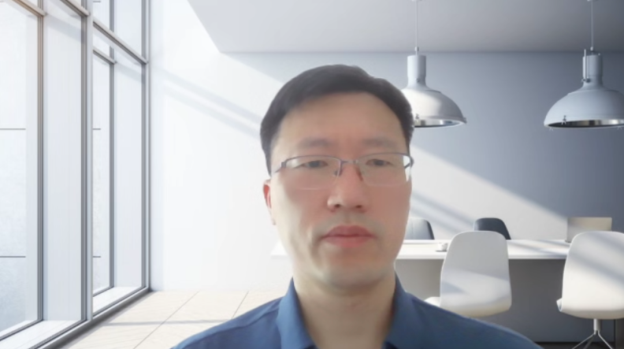
Professor Chang Hui, Dean of School of Foreign Languages, SJTU
The seminar lasted for three days, and the lectures were given by A/Professor Wang Pin and A/Professor Lai Liangtao. Firstly, Wang Pin introduced the origin and development of the concept of 'system' in systemic functional linguistics, focusing on the grammatical systems of personal pronouns, mood, and modality, and exploring the principles and mechanisms of constructing systemic networks, as well as the NEGOTIATION system realized by mood with respect to the tenor relations, and discussed the forms and functions of MOOD and MODALITY in English and Chinese. On the last day of the seminar, he focused on the realizations of textual metafunction by taking English and Chinese examples to explain the role of themes and information structures in organizing information and achieving cohesion and coherence.
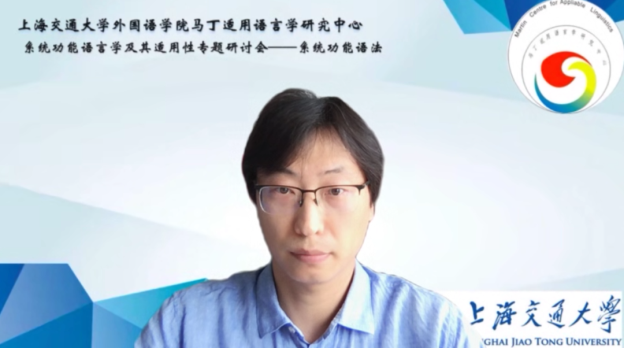
Associate Professor Wang Pin, Martin Centre, SJTU
A/Professor Lai Liangtao focused on the components and features of nominal groups, verbal phrases and adverbial groups in a rank scale to discuss their ideational, interpersonal, and textual metafunctions, and explored the logical-semantic structure and interdependency relations between the univariant and multivariant structures of different groups. In the second day of the workshop, Lai Liangtao explored the complementarity between the basic configurations, process types and specific elements realizing the ideational metafunction from the perspective of TRANSITIVITY system. In the last day of the seminar, he focused on the realization of grammatical metaphors, their types and semantic effects, the interdependency relations and logical-semantic relations between clauses in clause complexes.
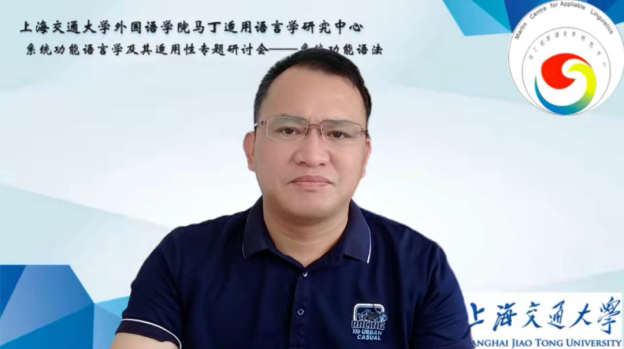
Associate Professor Lai Liangtao, Martin Centre, SJTU
The three-day seminar came to an end in the afternoon of June 25. Professor Wang Zhenhua addressed the closing of the event. At the closing he pointed out the theoretical foundation of functional grammar in the field of systemic functional linguistics research, shared his insights on the theoretical nature of functional grammar, and emphasized the close relations between systemic functional linguistics and the study of social properties of language. This seminar was highly evaluated by the participating teachers and students.
.jpg)
Professor Wang Zhenhua, Director of Martin Centre, SJTU
